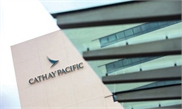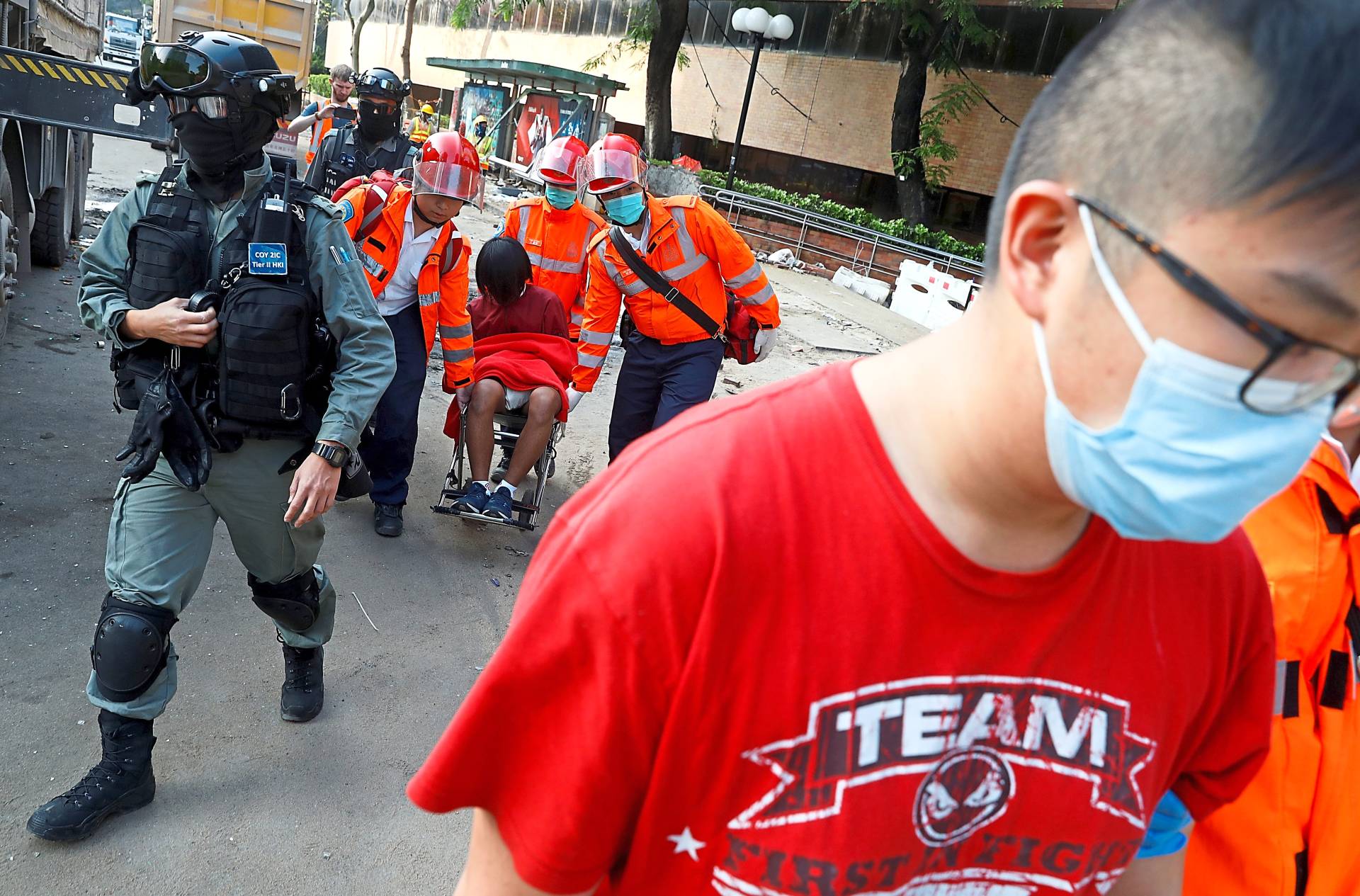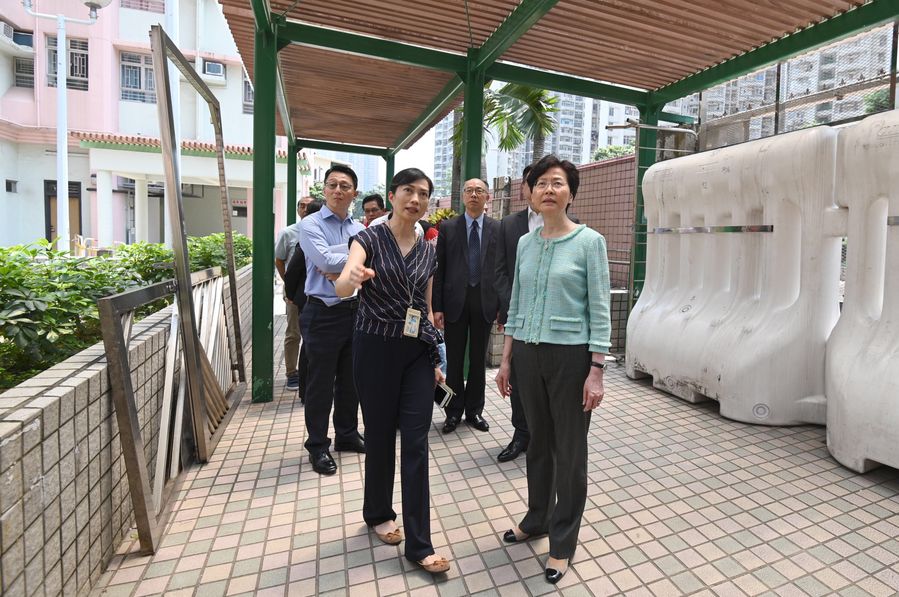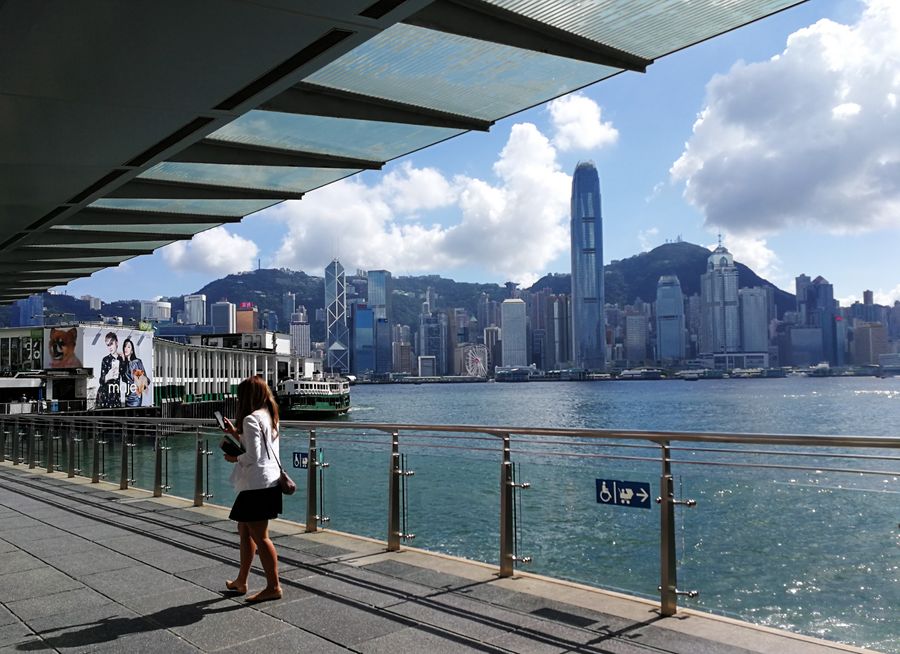 |
| A rioter waves a US national flag in Tsim Sha Tsui district in Hong Kong on August 11. Photo: AFP |
https://youtu.be/TrZvlhizKb0
https://youtu.be/jMOTCnsS7RU
Inside America's Meddling Machine: NED, the US-Funded Org Interfering in Elections Across the Globe
https://youtu.be/NzIJ25ob1aA
https://youtu.be/m5xXUsU9oEI
Are these the men behind the Hong Kong protests?
https://youtu.be/GQd3N2ImyyM
The Point: What went wrong with Hong Kong's education? Is it one root-cause of the current hostility how these young people are being educated?
https://youtu.be/_bYTZY8wM_I
How can the HK government bring back law and order?
https://youtu.be/TWjmPdX_jsw
Hong Kong Legal Exchange Foundation to ask UN to probe U.S. involvement in riots
https://youtu.be/USHs1RtdPFI
Foreign forces have been trying to influence HK for years to infiltrate mainland
Some foreign forces have had a hand in what is happening in Hong Kong. The list includes the US Democratic politician Nancy Pelosi, Senate MajorityLeader Mitch McConnell and Republican senator Marco Rubio as well as staff from the Consulate General of the US in Hong Kong and think tanks from the US.
They either neglect what is happening in Hong Kong, make groundless accusations about the Chinese government or send the wrong signals to radical protesters. They also invited people involved in what is happening in Hong Kong to visit the US and funded the so-called democratic and political movement.
Analysts said that long before Hong Kong returned to China, the US made it a point to contain China in a soft way by promoting the West's ideology. And now the US is openly interfering in China's domestic affairs.
In 1998, US president Bill Clinton paid a visit to Hong Kong and praised the city for its trade and globalization, and noted that the US thinks Hong Kong is not only important to China, but also to Asia, the US and the whole world.
But now, some Americans are using Hong Kong as a card to contain China.
In the book Hong Kong and the Cold War: Anglo-American Relations 1949-1957, the author Chi-kwan Mark wrote that after 1949, the British Empire in Hong Kong was more vulnerable. "Concerned about possible Chinese retaliation, the British insisted and the Americans accepted that Hong Kong's role should be as discreet and non-confrontational in nature as possible."
"Top decision-makers in Washington evaluated Hong Kong's significance not in its own right, but in the context of the Anglo-American relationship: Hong Kong was seen primarily as a bargaining chip to obtain British support for US policy elsewhere in Asia."
During the Cold War, the Truman Administration ramped up efforts in ideological propaganda and infiltration of China and undertook a series of moves in Hong Kong through the US Information Agency there.
The main mission for the agency in Hong Kong was to create an anti-China atmosphere through broadcasts, movies, media and book publishing, cultivating support for the US and capitalism.
In 1957, the US National Security Council made US policy on Hong Kong, which explained its goal of conducting ideological and infiltration work on the Chinese mainland through Hong Kong. The document was signed by the then US president.
An officer at the US Consulate General reportedly met with major "Hong Kong Independence" activists in early August. The officer was later identified as Julie Eadeh, political unit chief of the consulate general.
Eadeh was involved in plotting subversive actions under the name of human rights and democracy while she was stationed in the Middle East as a diplomat, said Ta Kung Pao.
Eadeh's former superior, Kurt Tong, former Consul General of the US to Hong Kong and Macao, frequently warned Hong Kong not to promote the extradition bill through the media.
Tong once said in an interview with the media that the legal systems of mainland and Hong Kong are different, so it is a natural reaction for Hong Kong people to pay attention to the amendment of the bill, according to Ta Kung Pao. His remarks were criticized by some media as "open political interference."
Chan Yong, a Hong Kong deputy to the National People's Congress was quoted by Ta Kung Pao as saying that Tong's remarks showed "gangster logic." The US has started color revolutions in many places in the world. Tong is only a diplomat who is not elected by the Hong Kong people and has no qualification to discuss what is happening in Hong Kong, Chan said.
Tang Fei, a member of the Chinese Association of Hong Kong & Macao Studies, told the Global Times that the US has been openly interfering in Hong Kong affairs since 2010 when Stephen Markley Young was the US Consul General in Hong Kong.
Tang said that almost all the US consul generals in Hong Kong had been appointed to work in Taiwan. During Young's stay in Hong Kong, the "Arab Spring" took place and his remarks on the anti-government protests and armed rebellions that spread across North Africa and the Middle East in the early 2010s were criticized as intentionally stirring up political movements movements in Hong Kong.
NGO involvement
With Hong Kong's chaotic situation, some think tanks and NGOs that are closely connected with the White House are also interfering.
Jonathan Schanzer, senior vice president for research at the Foundation for Defense of Democracies, on July 9 hosted a forum named "Protests, Crackdowns, and the Future of Hong Kong: A Conversation with Jimmy Lai Chee-Ying."
Schanzer has frequent interactions with John Bolton, Assistant to the President for National Security Affairs. However, Schanzer does not study Chinese affairs, but is an expert on Middle East issues.
NBC reported that during the event, Lai emphasized America's "moral force," saying, "We need to know that America is behind us."
The Center for Strategic and International Studies of the US invited Kurt Tong to give a speech. Tong suggested Washington should conduct more active communication with Hong Kong, instead of seeing the region as a minor issue.
The website of US think tank Jamestown Foundation on July 16 published a report related to Hong Kong by Russell Hsiao, Executive Director of the "Global Taiwan Institute." Hsiao has maintained a close relationship with the Democratic Progressive Party, which promotes Taiwan secession.
In US academia, there are not many scholars who have been following Hong Kong issues. Most people who study Hong Kong are those with experience of living in the region, such as Richard Bush III, the director of the Center for Northeast Asian Policy Studies (CNAPS) of the Brookings Institution.
According to a Chinese language BBC report in July, Bush said the Hong Kong radicals have set a very high goal and their strategy is becoming more aggressive, which is almost certain to draw a reaction from the police. "US Government, NGOs Fuel and Fund Hong Kong Anti-Extradition Protests," read an article published on the Global Research website in Canada.
"Maintaining Hong Kong's distance from China has been important to the US for decades. One former CIA agent even admitted that "Hong Kong was our listening post," the article read, stating that the National Endowment for Democracy (NED), a CIA soft-power cutout, has been funding groups in Hong Kong since 1994.
NED has two branches out of its main four, the Solidarity Center (SC) and the National Democratic Institute (NDI), which are closely connected with the groups in Hong Kong. Louisa Greve, vice president of programs for Asia, the Middle East and North Africa, said that NED's funding for Hong Kong groups has been "consistent," according to the article.
In 2014, Greve even admitted in public that "activists know the risks of working with NED partners" in Hong Kong, but do it anyway.
When searching "Hong Kong" on the NED website, the Global Times reporter found 14 related items, including $1.95 million in funding for the region. In May, the foundation invited some "pro-secession" activists for a seminar, after which the violence in Hong Kong streets became increasingly severe, echoing the voice of anti-China politicians and NGOs in Washington.
Similar tricks to 'Color Revolution'
The US has always kept a close economic and social relationship with Hong Kong. American companies generally praise the business environment in Hong Kong, including its judicial system, free flow of information, low tax rate and local infrastructure. More than 1,300 US firms operate in Hong Kong, including 726 regional operations and there are approximately 85,000 American residents in Hong Kong, according to a report released by the US Department of State in July 2018.
In addition, "The US trade surplus with Hong Kong is the single largest with a US trading partner, with a surplus in 2017 of $32.6 billion," said the report. Main Hong Kong imports from the US are American aircraft and spacecraft, electronic machines, pearls, gold, diamonds, artwork, meat, fruit and nuts.
However, the American Chamber of Commerce in Hong Kong has been playing a dishonorable role. In March, the chamber expressed views in newspapers belonging to the opposition camp in Hong Kong, saying it sent a strongly-worded position paper to the Security Bureau under the Government of the Hong Kong Special Administrative Region (HKSAR).
In the past, the chamber submitted such advice directly to the HKSAR, but this time, it made a show of "politicizing the commerce chamber" - deliberately revealing the advice through opposition media in order to stir up society.
Anson Chan Fang On-sang and several other opposition leaders visited the US to meet with US Vice President Mike Pence, US Secretary of State Michael Pompeo and US House speaker Nancy Pelosi, who has frequently made irresponsible remarks and even "gave orders" to the HKSAR Chief Executive.
Some opinions in Hong Kong said pro-democracy leaders receive a high standard of hospitality from the US, which shows how much attention the US pays to Hong Kong, but amid the tense situation of the China-US trade friction, such behavior "gets Hong Kong and the opposition camp involved in the wrestling between China and the US," which is very unwise.
The main influence of the US on Hong Kong is reflected in the high-end financial industry, as the big investment banks are mainly from the US, Tang told the Global Times.
Tang noted the cost for the US to play the "Hong Kong card" to start a strategic competition with China is not high. Even though the surplus of US enterprises in Hong Kong reaches $40 billion each year, which balances out the deficit with China, the US can control its enterprises and investment banks in Hong Kong through "long-arm jurisdiction." It can threaten to cancel Hong Kong's position as an "independent customs area" using the excuse of the "extradition bill crisis."
This situation puts Hong Kong in a dilemma: even if Hong Kong compromises, the city will not gain goodwill from the opposition camp backed by the US; if Hong Kong shows a tough position, the US may weaken Hong Kong's position as a global financial center.
During the Cold War, the US made Hong Kong a "shop window" to showcase Western values of democracy, thus implementing a type of "soft containment." The infiltration by the US, to some extent, has impacted Hong Kong society and its people. For instance, some Hongkongers are prejudiced against the Chinese government, which proves that the US infiltration has made the values of some intellectuals and youths in Hong Kong more Westernized.
The political, economic, social and cultural system have basically remained unchanged since China resumed exercise of sovereignty over Hong Kong in 1997, so the values of some Hongkongers are still close to the UK and US, said Chan Chi-Ho, vice executive chairman of the Hong Kong CPPCC Youth Association. During the "anti-extradition bill" protests, some people frequently came to meet US politicians and took the initiative to ask foreign forces to intervene, Chan said. For example, they published joint signatures on the White House website and connected with US diplomatic personnel in Hong Kong.
Chan said many Hongkongers know that the reason for the protests is support from foreign forces. The locals do not agree with waving UK and US national flags in public places because it completely betrays the national interest and the Chinese people's feelings. After all, very few people want Hong Kong to become a colony again.
Meanwhile, it is notable that the action of waving foreign flags drew strong disgust from people who love China and Hong Kong. Many local people were angered by this traitorous action.
The situation in Hong Kong can now be described as "UK retreating but US advancing," which was reflected in the Occupy Central Movement in 2014, according to Li Xiaobing, an expert on Hong Kong, Macao and Taiwan, from Nankai University in Tianjin. The movement made Hong Kong a strategic strongpoint supported by foreign political forces, as well as a wedge that deeply affects China.
Li noted the operations, tricks and methods taken by the US during the "anti-extradition bill" protests are similar to color revolutions in other places. Everything from the image building and power allocation to propaganda and political objectives are very similar. The duration and mobility of the recent protests all surpassed that of the 2014 movement in terms of level and width.
Li predicts that the US will not give up playing the Hong Kong card easily. At the same time, Beijing will enhance its countermeasures. As a result, the overall situation in Hong Kong will be controlled, he said. - Source link
China 'will not sit by' if Hong Kong crisis worsens, says Chinese envoy ...
https://youtu.be/XXg4xH2FS-o
https://youtu.be/bKjTmJM5tdU
HK's future lies with China, not with the West
Only by ending the riots can Hong Kong get back to normal.
The breeze blowing toward Hong Kong in the future must come from the
mainland, not from the West.
How Hong Kong can be turned around
https://youtu.be/XXg4xH2FS-o
https://youtu.be/bKjTmJM5tdU
HK's future lies with China, not with the West
Only by ending the riots can Hong Kong get back to normal. The breeze blowing toward Hong Kong in the future must come from the mainland, not from the West.
How Hong Kong can be turned around
- Members of Hong Kong China Chamber of Commerce express support for police
- It is sad to see how Hong Kong is degenerating
- Hong Kong must make a choice: stability or turmoil?
- Hong Kong youth should rechannel anger
The US' request to have its navy warships visit Hong Kong amid protests there is inappropriate and could have ulterior motives, Chinese experts said on Wednesday as China has reportedly turned the request down.
Futile for Washington to play HK card
The HK problems are essentially a family quarrel | The Star Online
 Cathay Pacific CEO resigns amid riots
Cathay Pacific CEO resigns amid riots
The resignation of two senior executives of Cathay
Pacific Airways might not help the Hong Kong-based airline win back
Chinese consumers who persisted with their boycott and demanded that it
severely punish its radical employees.
 Cathay Pacific CEO resigns amid riots
Cathay Pacific CEO resigns amid riots
The resignation of two senior executives of Cathay
Pacific Airways might not help the Hong Kong-based airline win back
Chinese consumers who persisted with their boycott and demanded that it
severely punish its radical employees.
Related post:
Hong Kong's social problems stem from British rule, faces risk of Beijing rule as UK's ‘toothless threat’ against China
China orders US to remove ‘black hands’ from Hong Kong


























